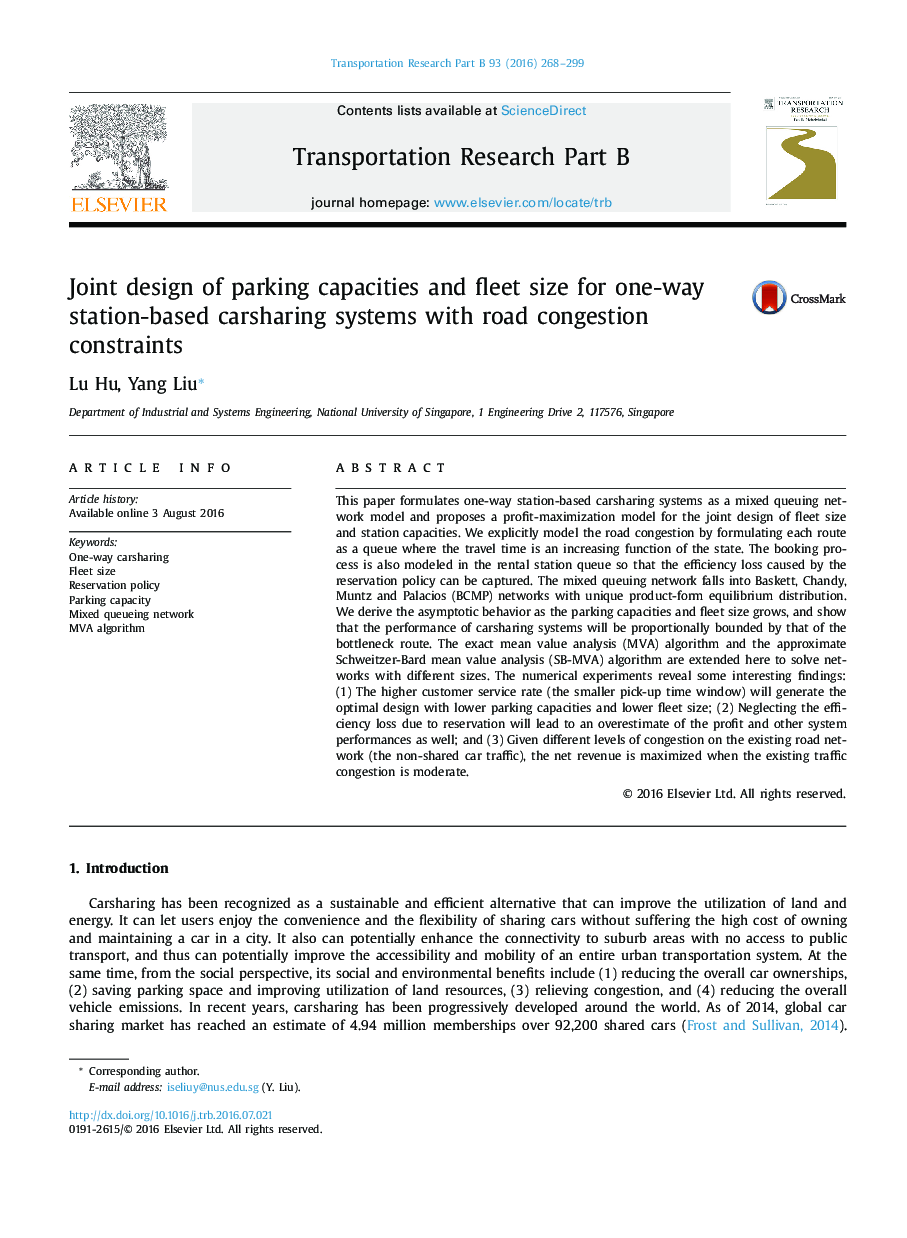| کد مقاله | کد نشریه | سال انتشار | مقاله انگلیسی | نسخه تمام متن |
|---|---|---|---|---|
| 5127185 | 1378546 | 2016 | 32 صفحه PDF | دانلود رایگان |
- A mixed queuing network model is proposed to formulate the one-way station-based carsharing system with consideration of road congestion and booking policy.
- The mixed queuing network falls into BCMP network with unique product-form equilibrium solution.
- The asymptotic analysis reveals the queuing network performance is restrained by its bottleneck route as the fleet size and capacities grow to infinity.
- The profit-maximization framework is developed in which the monotonicity of optimal fleet size with respect to reservation policy is derived.
- The exact MVA algorithm and the approximate SB-MVA algorithm are extended to solve our model with state-dependency property, and are tested in the numerical experiments with different network sizes.
This paper formulates one-way station-based carsharing systems as a mixed queuing network model and proposes a profit-maximization model for the joint design of fleet size and station capacities. We explicitly model the road congestion by formulating each route as a queue where the travel time is an increasing function of the state. The booking process is also modeled in the rental station queue so that the efficiency loss caused by the reservation policy can be captured. The mixed queuing network falls into Baskett, Chandy, Muntz and Palacios (BCMP) networks with unique product-form equilibrium distribution. We derive the asymptotic behavior as the parking capacities and fleet size grows, and show that the performance of carsharing systems will be proportionally bounded by that of the bottleneck route. The exact mean value analysis (MVA) algorithm and the approximate Schweitzer-Bard mean value analysis (SB-MVA) algorithm are extended here to solve networks with different sizes. The numerical experiments reveal some interesting findings: (1) The higher customer service rate (the smaller pick-up time window) will generate the optimal design with lower parking capacities and lower fleet size; (2) Neglecting the efficiency loss due to reservation will lead to an overestimate of the profit and other system performances as well; and (3) Given different levels of congestion on the existing road network (the non-shared car traffic), the net revenue is maximized when the existing traffic congestion is moderate.
Journal: Transportation Research Part B: Methodological - Volume 93, Part A, November 2016, Pages 268-299
